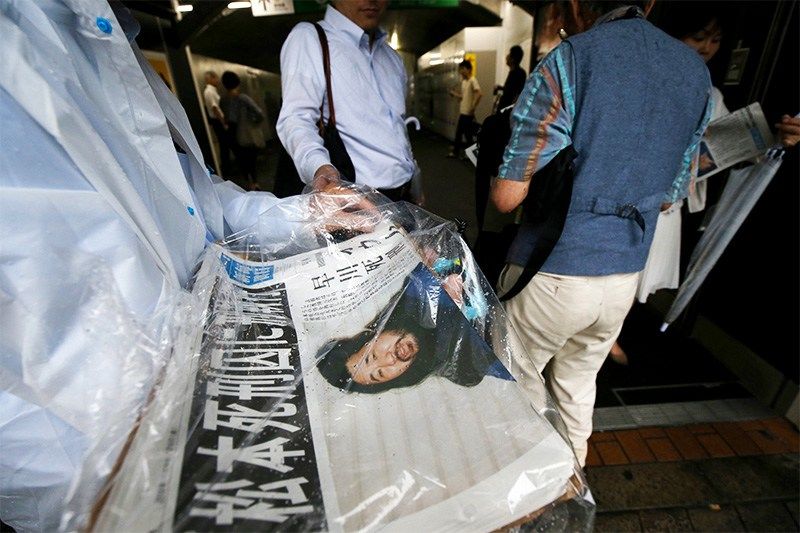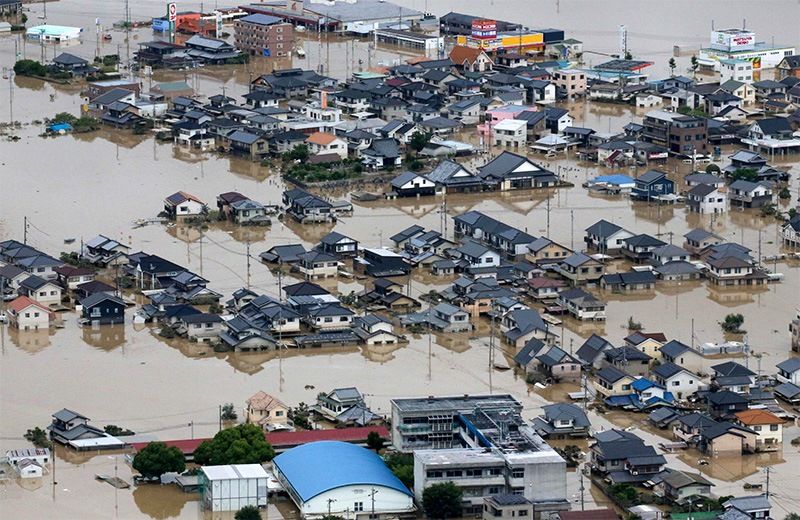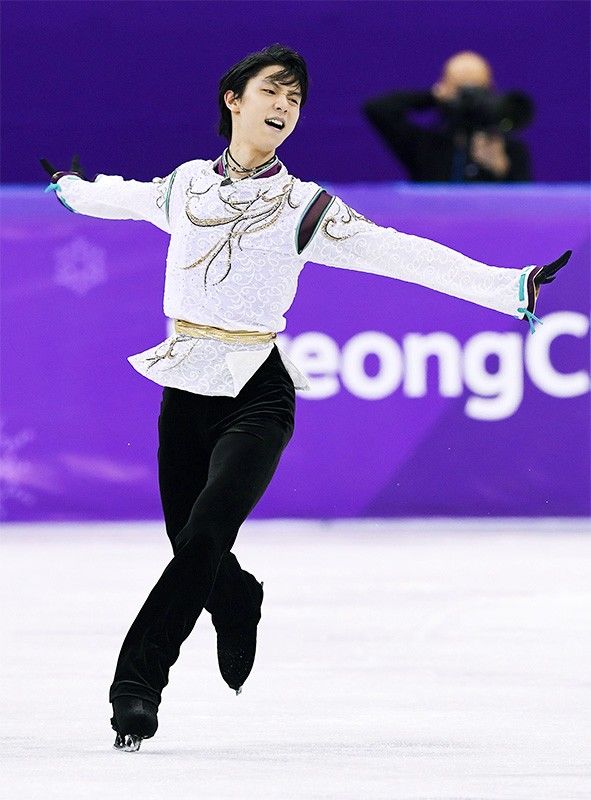Japan: The Top Stories of 2018
Newsfrom Japan
Society- English
- 日本語
- 简体字
- 繁體字
- Français
- Español
- العربية
- Русский
Politics: Abe Weathers the Storm
Legislative Progress
Prime Minister Abe Shinzō was able to push forward steadily with administrative goals in 2018, despite the blowback from influence scandals related to educational organizations Moritomo Gakuen and Kake Gakuen. In September, he was elected for a third term as president of the Liberal Democratic Party, opening up the possibility of becoming Japan’s longest serving prime minister. Among the legislation that the Abe government successfully shepherded through the National Diet this year were laws related to work-style reform, lowering the adult age to 18, and legalizing casinos within integrated resorts. Legislators also passed amendments to the Immigration Control and Refugee Recognition Act to accept more foreign workers. However, Abe was unable to introduce his hoped-for bill on constitutional reform.
Ministry Scandals
In March, allegations arose that the Ministry of Finance made changes to documents concerning the sale of state-owned land to school operator Moritomo Gakuen. National Tax Agency Commissioner Sagawa Nobuhisa, who was involved with the issue as director-general of the ministry’s Financial Bureau, resigned as the MOF admitted falsification. In April, Vice Finance Minister Fukuda Jun’ichi also resigned after alleged sexual harassment of female journalists. Two Ministry of Education, Culture, Sports, Science, and Technology (MEXT) officials were arrested in July on bribery-related charges. In August, the government announced that published numbers of disabled workers at central government agencies had been inflated to clear minimum required levels.
Okinawa Base Dispute
In August, the Okinawa prefectural government canceled permission granted by former Governor Nakaima Hirokazu for landfill work in the Henoko coastal area ahead of the planned construction of a US military facility. However, Minister of Land, Infrastructure, Transport, and Tourism Ishii Keiichi suspended the prefectural withdrawal of approval in October and the Ministry of Defense restarted work on the base. As the Okinawan and national government remained at odds, land reclamation work began on December 14.
Opposition Realignment
The Democratic Party and Party of Hope merged in May to form the Democratic Party for the People, which became the second largest opposition party. Tamaki Yūichirō was chosen as its leader in a September election.
Diplomacy: Chance to Solve Russia Dispute
Although the US–North Korean summit in June eased nuclear tensions, there was no concrete progress on the issue of abducted Japanese citizens. At a September meeting between Prime Minister Abe and US President Donald Trump, the two leaders agreed to enter negotiations on tariffs, including farm products, with the aim of concluding a trade agreement on goods, expanding bilateral trade and investment.
Prime Minister Abe visited China in October, where he talked with President Xi Jinping. They agreed to build a new bilateral relationship in which their countries will shift from competition to cooperation and there will be regular visits by each leader. Relations between Japan and South Korea cooled after the latter’s Supreme Court ordered Nippon Steel and Sumitomo Metal to pay compensation to former workers for their forced labor during World War II.
It was a year of diplomatic maneuvering between Japan and Russia over the Northern Territories. Prime Minister Abe spoke with President Vladimir Putin in Singapore in November. The two agreed to work toward a peace treaty on the basis of the 1956 Japan-Soviet joint declaration, which states that the Habomai and Shikotan Islands will be handed over to Japan.
The Comprehensive and Progressive Agreement for Trans-Pacific Partnership was revived between 11 of the original TPP countries in 2017, after the withdrawal of the United States, and formally signed by ministers in March 2018. As required, 6 countries including Japan ratified the deal by October, and it came into effect on December 30. Japan and the European Union entered an economic partnership agreement in July, which is due to come into force in February 2019.
Economics: The Ghosn Shock
Kuroda Stays on at BOJ
The government reappointed Kuroda Haruhiko as governor of the Bank of Japan in April, and he continued with the same basic strategy of financial easing. By adopting a forward guidance in July on future policy, he made clear that interest rates will remain low over the long term.
Nissan Boss Ghosn Arrested
Nissan Chairman Carlos Ghosn was arrested in November by investigators from the Tokyo District Public Prosecutors Office on suspected violation of the Financial Instruments and Exchange Act by underreporting his executive remuneration by ¥5 billion. He was removed as chairman from both Nissan and Mitsubishi Motors.
No End to Corporate Scandals
Corporate Japan was plagued by data falsification scandals in 2017 at companies like Kobe Steel and subsidiaries for Mitsubishi Materials and Toray. This trend continued in 2018. In October, industrial parts manufacturer KYB announced that it had discovered data falsification related to some of its oil dampers used for seismic isolation and vibration control in large structures. In November, Hitachi Chemical revealed that it had found cases of failure to conduct required inspections and falsification of data.
Society: A Year of Disasters
Cult Members Executed
In January, the Supreme Court rejected an appeal from a former member of Aum Shinrikyō charged with crimes including murder in the sarin gas attack on the Tokyo subway, bringing to an end all trials related to the actions of the cult. The Department of Justice executed leader Matsumoto Chizuo (Asahara Shōko) and six other former members on July 6 and then completed executions of the six remaining members sentenced to death on July 26.
 A Tokyo newspaper worker hands out an extra edition on July 6, 2018, reporting the execution of former Aum Shinrikyō leader Matsumoto Chizuo and six of his followers. (© Jiji)
A Tokyo newspaper worker hands out an extra edition on July 6, 2018, reporting the execution of former Aum Shinrikyō leader Matsumoto Chizuo and six of his followers. (© Jiji)
Earthquakes, Typhoons, and Summer Heat
Japan’s summer of disasters began on June 18 with an earthquake measuring lower six on the seismic intensity scale that rocked Osaka, killing 5 people and injuring more than 400. Record-breaking rainfall in western Japan on July 7 left more than 220 dead or injured. Typhoon Jebi caused major damage in September, flooding runways at Kansai International Airport and forcing its closure, while a tanker collided with the bridge connecting the facility to the mainland. On September 6, an earthquake with a hypocenter in the Iburi region of Hokkaidō caused intensity-level seven shaking. A total of 41 people were killed in multiple landslides and structure collapses, and power was lost temporarily in all 2.95 million of the prefecture’s buildings.
 Flooded streets in Kurashiki, Okayama Prefecture, on July 8, 2018. (© Jiji)
Flooded streets in Kurashiki, Okayama Prefecture, on July 8, 2018. (© Jiji)
A July heatwave saw Kumagaya, Saitama Prefecture, hit 41.1º, setting a new Japanese temperature record. On July 24, the Fire and Disaster Management Agency announced that a total of 22,647 heatstroke victims used emergency transportation services in the week of July 16–22, of whom 65 died.
Medical Exam Manipulation
In July, the Tokyo District Public Prosecutors Office’s special investigation squad arrested MEXT official Sano Futoshi on suspicion of giving Tokyo Medical University favorable treatment in selection for a support program in exchange for having his son fraudulently given a passing mark in entrance exams. It later emerged that many institutions were manipulating entrance exam scores for medical courses to discriminate against female candidates and those retaking exams.
Sci-tech: Treating Cancer and Heart Disease
Honjo Awarded Medicine Nobel
Kyoto University Professor Honjo Tasuku was awarded the 2018 Nobel Prize in Physiology or Medicine for his discovery of cancer therapy by inhibition of negative immune regulation. He was the twenty-seventh Japan-born Nobel laureate, including US citizens Nanbu Yōichirō and Nakamura Shūji and British citizen Kazuo Ishiguro.
iPS Clinical Trials
In May, a Ministry of Health, Labor, and Welfare panel conditionally approved an Osaka University clinical trial of transplants of heart muscle cells created from induced pluripotent stem cells to treat severe heart disease. Kyoto University announced in November that it had conducted a clinical trial in which nerve cells created from iPS cells were transplanted into the brain of a Parkinson’s disease patient in his fifties.
Asteroid Exploration
In June, the spacecraft Hayabusa 2, launched by the Japan Aerospace Exploration Agency in 2014, reached the asteroid Ryūgū, located 300 million kilometers from Earth. JAXA announced in September that two small robotic explorers released from the spacecraft had successfully landed on the asteroid.
Culture: Koreeda’s Cannes Triumph
Koreeda Hirokazu’s film Shoplifters won the Palme d’Or on May 19 at the Cannes Film Festival, becoming the first Japanese winner since 1997. Japan received more international recognition on June 30, when UNESCO registered the Hidden Christian Sites in the Nagasaki Region as a World Heritage site.
Shōgi prodigy Fujii Sōta became the first junior high school student promoted to sixth dan in February after winning his first professional competition. In May, he became the youngest shōgi player to be promoted to the rank of seventh dan at 15 years and 9 months. In December, he secured his one hundredth win, becoming the youngest player to do so. He was also the fastest to reach the milestone and had the highest win-loss ratio.
Sports: Hanyū Retains Olympic Gold
Japan amassed a record total of 13 medals (4 gold, 5 silver, and 4 bronze) at the Winter Olympic Games in Pyeongchang, South Korea. Among the Japanese athletes catching the eye were Hanyū Yuzuru, who took gold in the men’s singles figure skating event for the second successive competition, and the women’s curling team, who won bronze.
 Hanyū Yuzuru performs in the men’s singles figure skating event on February 17, 2018, at the Pyeongchang Winter Olympics in South Korea. (© Jiji)
Hanyū Yuzuru performs in the men’s singles figure skating event on February 17, 2018, at the Pyeongchang Winter Olympics in South Korea. (© Jiji)
Breakout tennis star Ōsaka Naomi defeated Serena Williams in the final of the US Open women’s singles competition in September to become the first Japanese tennis player to win a Grand Slam singles tournament. In baseball, Ōtani Shōhei of the Los Angeles Angels was named the American League Rookie of the Year for his two-way exploits.
Amateur Sport Ignominy
In a troubled year for amateur sport, repeated excessively rough play by a Nihon University player in a college football match against Kwansei Gakuin University made big headlines. His head coach resigned and was expelled from the Kantoh Collegiate Football Association in what was seen as one example of abuse of power in the sports world. The previous month, the Japan Wrestling Federation’s development director Sakae Kazuhito resigned over harassment of Olympic gold medal winner Ichō Kaori. In August, Japan Amateur Boxing Federation head Yamane Akira resigned after allegations including that he misused grant money.
(Banner photo: Former Ministry of Finance official Sagawa Nobuhisa raises his hand during his witness testimony in the Diet on March 27, 2018. © Jiji.)